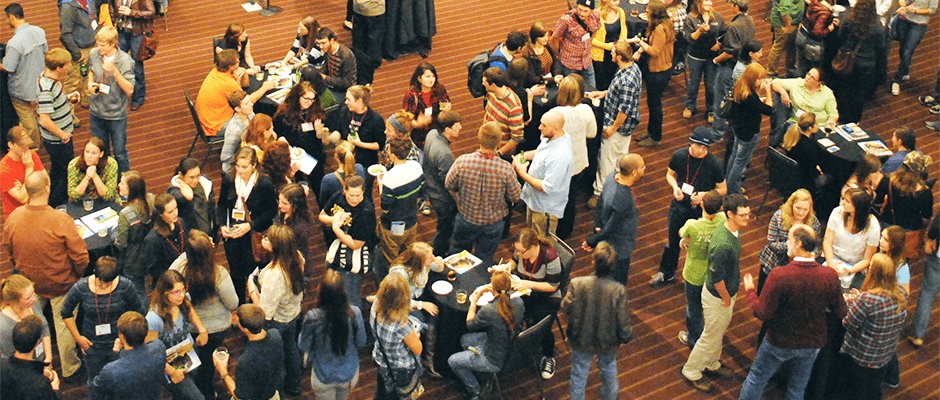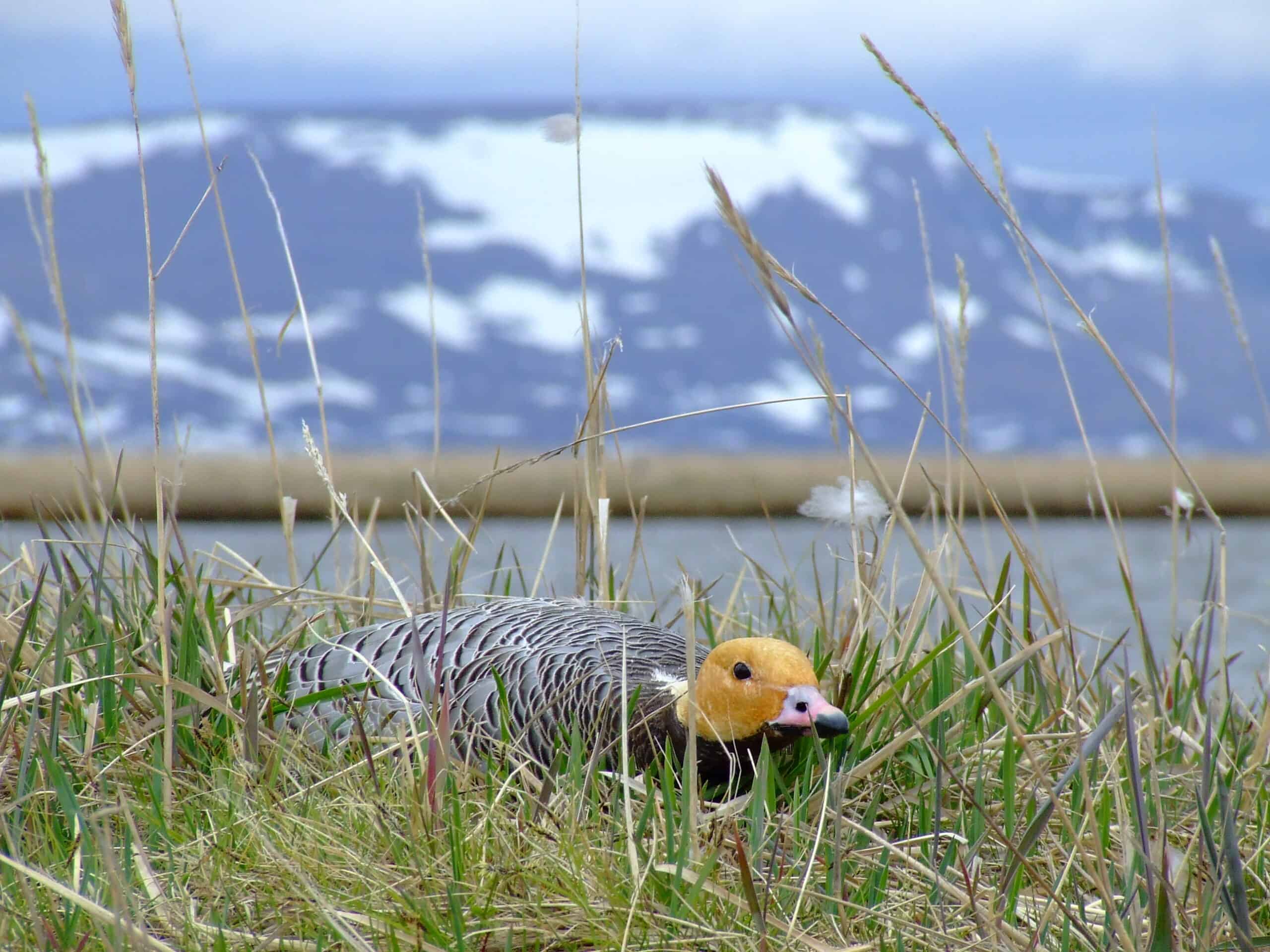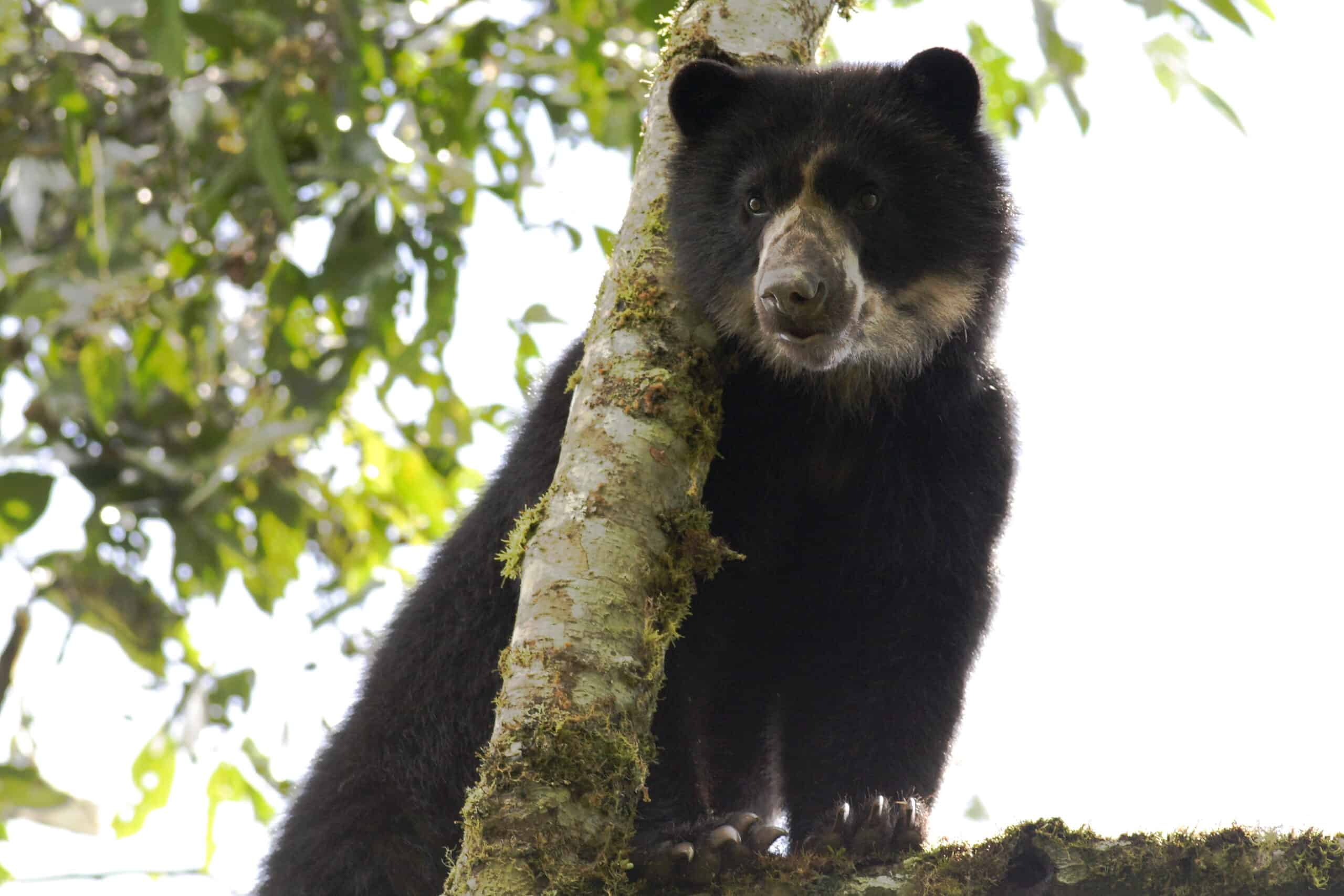Share this article
University course prepares students for annual TWS conference
Aside from their regular classes, students at Purdue University will take a course next fall to help prepare them for The Wildlife Society’s 23rd Annual Conference in Raleigh, North Carolina. The course — introduced in time for the 2014 Annual Conference in Pittsburgh — trains students in how to make the most of the TWS conference experience.
As part of the course, students are required to attend meetings every couple of weeks. “During those classes, we talked about how to prepare for the conference, made schedules for when they attend, and researched who was going to be there,” said graduate student Casey Day, who ran some of the mandatory meetings in the first year along with Assistant Professor of Wildlife Ecology and Management Liz Flaherty and Associate Professor of Wildlife Science Patrick Zollner.
The students were then given assignments associated with these goals. For example, students had to find a number of speakers they were interested in meeting or find a potential employer, graduate student or adviser to speak with. They then found research articles written by these people and wrote summaries of the articles. “This got them familiar with the research of the person that they would potentially meet,” Day said. “This was a way to motivate them to do some preparation.”
During the conference, the students met daily toward the end of the day and reflected on their experiences in a group discussion. “During the evening meetings, the students would report what they had accomplished and we would see them growing in confidence,” said Zollner, who launched the Pittsburgh conference course. “They started off scared to ask questions.” But by the end of the conference, they were tracking Zollner down so that he could go to a talk with them and watch them ask questions.
Students received credit and a grade for the course. They earned points for going to meetings on time, researching appropriate articles and writing good summaries. “Students universally said that having the class helped them get a lot more out of the meeting including the confidence to reach out to people,” Zollner said. Further, the course helped them stay organized and use their time well, he added. “One thing that was important for me to see was that this course took the stress away from students not knowing what to expect, so that they were able to be more enthusiastic,” Flaherty added.
Students also bonded with each other outside of the course by attending a hockey game together and visiting the national aviary, Day said.
Although Purdue University didn’t offer the course last year because only a small number of students were signed up to attend the Annual Conference in Winnipeg, this year, course organizers not only plan to offer the course but expect to include other universities as well. “We are planning on expanding this class to incorporate up to three additional schools and include specific crossover activities designed for the students to interact with each other and faculty across institutions,” Zollner said. So far, they have confirmed plans to work with Assistant Professor of Wildlife Ecology Rachael Urbanek to incorporate the University of North Carolina Wilmington as one of the collaborating universities.
Header Image: Students mingle at the student reception at the 2014 TWS annual conference in Pittsburgh.








